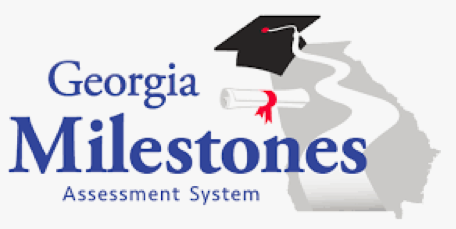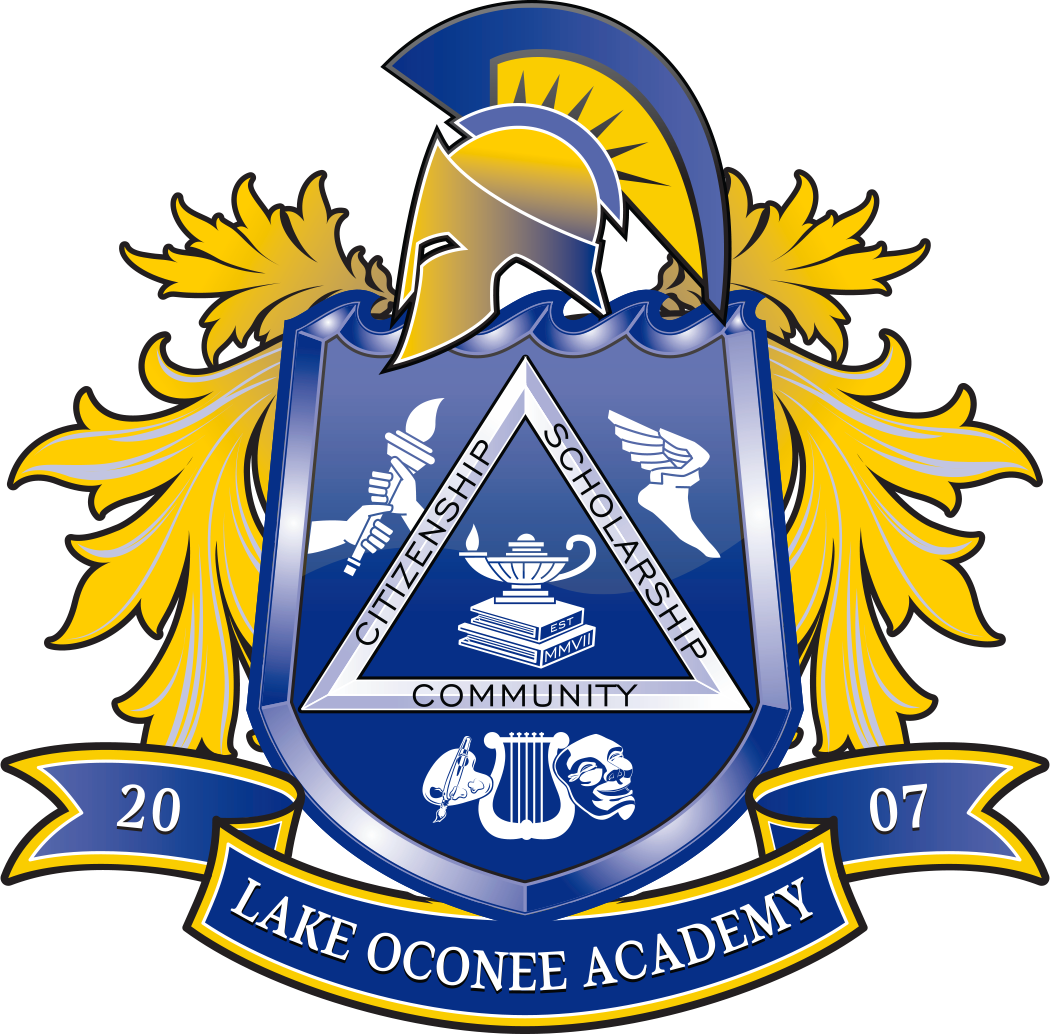Assessment Resources
Assessment Data
Milestone data in education helps track student progress, measure learning outcomes, and identify areas for growth. It provides valuable insights for educators to adjust instruction, support student achievement, and ensure continuous development. By analyzing milestone data, schools and teachers can make informed decisions to enhance learning experiences and academic success.
CCRPI
Georgia Milestones Data
Governor's Office of Student Achievement
+Georgia Milestones Assessment System

The Georgia Milestones Assessment System (Georgia Milestones) is a comprehensive summative assessment program spanning grades 3 through high school.
Georgia Milestones measures how well students have learned the knowledge and skills outlined in the state-adopted content standards in English Language Arts, mathematics, science, and social studies.
Students in grades 3 through 8 take an end-of-grade assessment in English Language Arts and mathematics while students in grades 5 and 8 are also assessed in science and social studies. High school students take an end-of-course assessment for each of the ten courses designated by the State Board of Education.
Features the Georgia Milestone Assessment System include:
- Open-ended (constructed-response) items in English Language Arts and mathematics (all grades and courses);
- A writing component (in response to passages read by students) at every grade level and course within the English Language Arts assessment;
- Norm-referenced items in all content areas and courses, to complement the criterion-referenced information and to provide a national comparison;
- Technology-enhanced items including multiple part/multiple answer, graphing, drag and drop; and
- Online administration considered the primary mode of administration and paper-pencil as back-up.
GA Milestones- End of Grade (EOG): Grades 3rd-8th
- Grade Level Study Guides
- Grade Level Assessment Guides
- Practice Georgia Milestones Site (Only Supported by Google Chrome)
GA Milestones- End of Course (EOC): High School Courses
- Content Study Guides
- Content Assessment Guides
- Practice Georgia Milestones Site (Only Supported by Google Chrome)
+iReady Diagnostic + Instruction

i-Ready Diagnostic is an adaptive assessment designed to provide teachers with actionable insight into student needs. The Diagnostic offers a complete picture of student performance and growth, eliminating the need for multiple, redundant tests. Diagnostic results also set a personalized learning path for each student, ensuring they’re working on instruction that matches their unique learning needs.
i-Ready Instruction delivers powerful online lessons that motivate students on their paths to proficiency and growth. Driven by insights from the i-Ready Diagnostic, i-Ready’s online K–8 lessons provide tailored instruction that meets students where they are in their learning journey and encourages them as they develop new skills. i-Ready Instruction is complemented by easily accessible teacher resources that enable teachers to target the specific skills with which students are struggling most in their whole class, small group, and one-to-one instruction.
i-Ready Instruction:
- Taps into the rich data from the i-Ready Diagnostic to deliver personalized learning paths to growth for each student, balancing rigor and reachability
- Meets learners at their level, helps them problem solve, and keeps them motivated to continue their progress
- Provides digital instruction that is proven to drive gains for students at all levels and is backed by evidence for ESSA
+College Board SAT Suite of Assessments

The SAT Suite of Assessments is an integrated system made up of these tests:
- SAT
- PSAT/NMSQT and PSAT 10
- PSAT 8/9
The tests measure the same skills and knowledge in ways that make sense for different grade levels, so it's easier for students, parents, and educators to monitor student progress.
The SAT Suite of Assessments does more than measure and support college and career readiness. It reinforces what students are learning in their classrooms and connects them to valuable opportunities and resources:
- Connects students to scholarships: Students who take the PSAT/NMSQT® during their junior year are automatically considered for the National Merit® Scholarship Program. There’s also more than $235 million in additional scholarships for qualified students who take the PSAT/NMSQT and PSAT™ 10.
- Drives equity: Every student should be able to apply to college. Income-eligible 11th- and 12th-grade students receive SAT fee waivers, unlimited SAT score sends, and college application fee waivers, so they can take the SAT and apply to college—all for free.
- Provides career planning tools: Students who take any of the assessments get access to Roadmap to Careers, an engaging online experience that helps students make smart, informed decisions about their future major and career by building upon their passions and interests.
- Overview of the SAT Suite of Assessments
- 2018-2019 SAT Dates
- SAT Practice Resources
- PSAT/NMSQT & PSAT 10 Practice Resources
- Free Practice at Khan Academy
+College Board Advanced Placement Exams

WHAT IS THE ADVANCED PLACEMENT (AP) PROGRAM?
Advanced Placement (AP) is a program for college-level courses and exams that gives high school students the opportunity to receive advanced placement and/or credit in college. About 1.2 million students participate in the AP Program each year, usually through an AP course.
WHAT ARE AP COURSES?
AP courses are introductory college courses, so they are not easy, but neither are they impossibly difficult. An AP course will be more demanding than a regular high school course. They often require more time and work, but the AP courses give you greater depth. A student should realize that taking an AP class is a serious commitment. Students should give careful thought to which and how many AP courses to take in one year. The purpose of this booklet is to help students clearly understand course requirements and expectations.
WHY TAKE AN AP EXAM?
Satisfactory grades on AP examinations offer many benefits which may enhance your applications for college admissions, placement, and scholarships. You may also receive college credit based on your AP scores. If a student does not take the AP examination, they will not receive the quality point added to their GPA for that course on their transcript. AP exams are administered each year in May. An exam contains both multiple-choice and free-response questions that require essay writing, problem solving, critical thinking and other analytical skills.
- The AP Experience
- AP Courses
- Taking the Exam
- About the exams
- Exam dates
- Exam policies
- Preparing for the exams
- About digital submissions
- Credit & Placement
+ACT

The ACT is an entrance exam used by most colleges and universities to make admissions decisions. It is a multiple-choice, pencil-and-paper test administered by ACT, Inc.
The purpose of the ACT test is to measure a high school student's readiness for college, and provide colleges with one common data point that can be used to compare all applicants. College admissions officers will review standardized test scores alongside your high school GPA, the classes you took in high school, letters of recommendation from teachers or mentors, extracurricular activities, admissions interviews, and personal essays. How important ACT scores are in the college application process varies from school to school.
What is on the ACT?
There are four ACT sections:
- English
- Reading
- Math
- Science
The ACT also includes an optional 40-minute Writing Test. Some colleges may require that you complete the ACT Writing Test. You can confirm each college's admissions policies on the school website or on our school profiles.
How long is the ACT?
The ACT is 2 hours and 55 minutes long. If you choose to take the ACT with Essay, the test will be 3 hours and 35 minutes long.
How is the ACT scored?
Each section of the ACT is scored on a 1 to 36 point scale. Your composite ACT score is the average of your four section scores, also on a scale from 1 to 36. If you take the ACT with Writing Test, you will receive a separate score on the Writing Test.

